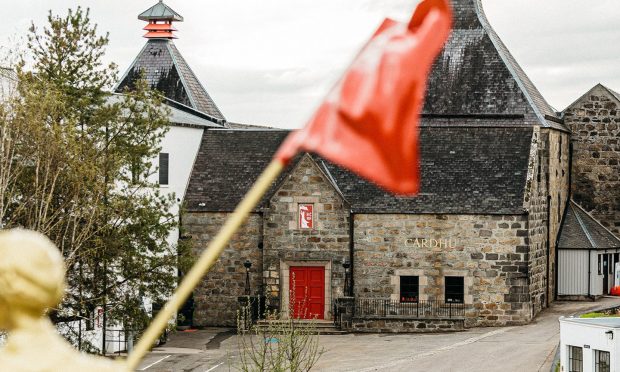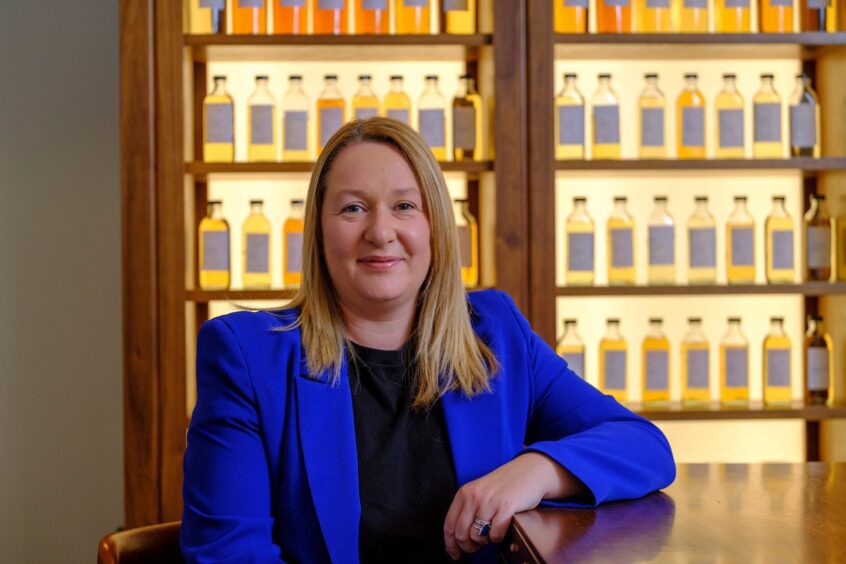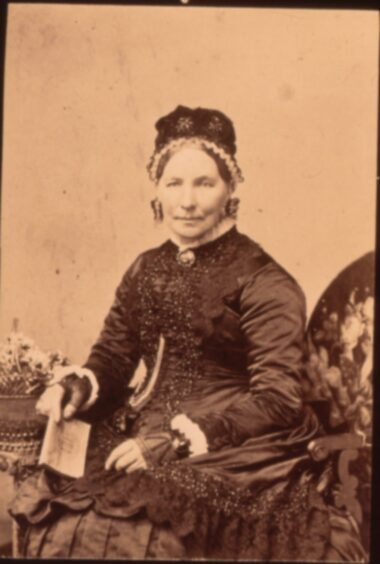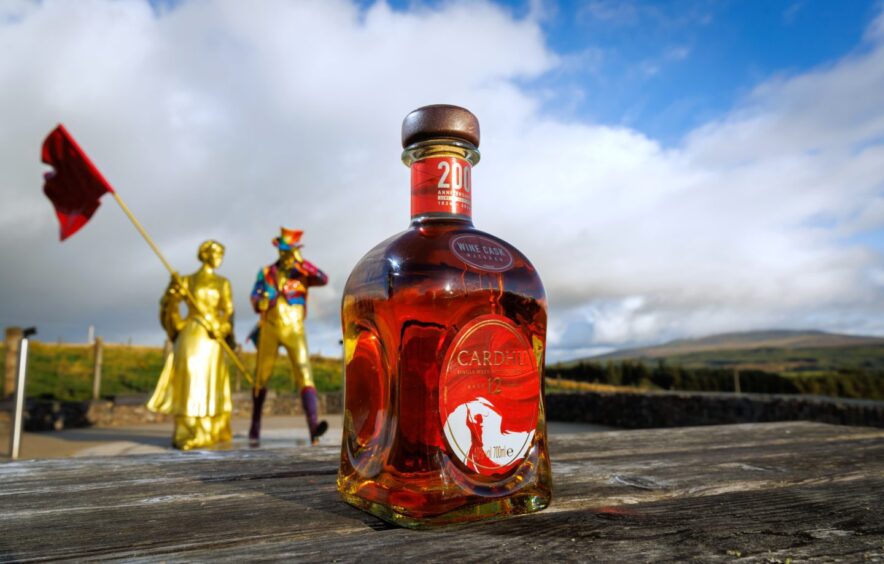
Instead of running from the excisemen, Helen Cumming would invite them in.
She had likely just doused herself in flour in the hopes of masking the fumes from the illicit still that would have clung to her apron.
“We can trace the Cardhu story back to 1811,” said Jo McKerchar, malts and gins historian and archivist at Diageo.
“This is when John and Helen Cumming got a license for a farm. Farming in rural Scotland was particularly tough, it was very hard to make money. They had everything around them that they needed to make whisky but it was expensive to make it legally so, as many others did, they set up illicit stills.
“I think there’s quite a romantic notion about illicit distilling at this time, people think of it as this lovely way us Scots distilled whisky. It was absolutely not that at all. If you were caught the fees were high, and if you couldn’t afford it, the punishments were severe. It was a difficult, scary and quite violent thing to be involved in. Farmers did this not because they thought it was a nice little thing to do, but to make sure they could feed their families.”
It likely would have been Helen doing the distilling while John was managing the farm. She became known locally as Granny Helen for her role in ensuring illicit stills remained hidden.
“She was best known for making friends with the local excisemen, so that when they came into the area to try and find these illicit stills, she would befriend them, invite them in and make them dinner,” explained Jo.
“Whilst they were sitting eating their dinner, she would go outside and fly a red flag from her farm, just to warn everybody else in the area that the excisemen were there.”
On every bottle that comes out of Cardhu distillery, another woman can be seen flying Helen’s red flag, symbolising her legacy being carried forward. The introduction of the Excise Act in 1823 meant many illicit distilleries decided to become legal, Cardhu being one of them. John’s name was on the license when, in 1824, the distillery was officially founded. Because of this details, even 200 years later Cardhu cannot claim to have had a female founder. After John died, Helen ran the distillery for a short while before passing it to her son, Lewis. But it was his wife, Elizabeth, who took the reins.
“Lewis dies quite quickly after he is handed the distillery, so really it’s down to Elizabeth,” said Jo.
“She’s got three children and another one on the way, her husband just passed away, and her daughter dies very soon after. Amongst must have been horrendous grief, she ploughs through and does what’s right for the distillery and by her workers, who are relying on her for their employment.
“Elizabeth turns things around for Cardhu and builds on Helen’s legacy; she trademarks the name, buys a lot more land and rebuilds the distillery because they were so successful, they had outgrown their premises.”
It could also be said that Cardhu is still so successful two decades later because of Elizabeth’s role in future-proofing the distillery.
Jo added: “It’s Elizabeth who sells the distillery to John Walker and sons in 1893. She ensures her son remains manager of Cardhu and insists he becomes a member of the board of directors at John Walker and Sons. She’s thinking ahead, she’s wanting to ensure that legacy continues for her family. She insists the workers at Cardhu remain there and have their housing conditions improved. Elizabeth is not just looking at this as an opportunity for her to become incredibly wealthy, she’s making sure that what she does also benefits her community. Their homes get electricity, which is incredible at this time in 1893 in Speyside.”
This year, as Cardhu celebrates its 200th anniversary, Jo and the archives team have made sure the women woven through its history are at the forefront of the storytelling. Jo said we don’t have to look as far back as 200 years to find these stories either. In 1946, Gina Grant was doing what was traditionally a man’s job as a maltman, and one of the first female customs and excise managers worked at Cardhu in the 50s.
Even today, Cardhu’s regional brand home manager Roselyn, site operation manager Laura and experience ambassador Jo are all strong women. The team at the distillery also promote and collaborate with women who embody the same pioneering spirit as Helen and Elizabeth.
“It’s important to tell people these stories are there because I think quite often – and historians say this – history is written by men for men,” said Jo.
“We need to ensure these stories don’t become hidden parts of history. The reason that Cardhu still exist today is because of these women and the decisions they made. I also think it’s incredibly important for women to see the role models that came before them. I have a son and a daughter and I want both of them to see examples of women that have succeeded in their careers, and that even goes back to me; I want them to see mum goes to work as well as dad. I love the fact that that female story is continuing to show itself at Cardhu today. It’s not one we’ve manufactured, it has just naturally happened. I think that’s really special.”

Enjoy the convenience of having The Sunday Post delivered as a digital ePaper straight to your smartphone, tablet or computer.
Subscribe for only £5.49 a month and enjoy all the benefits of the printed paper as a digital replica.
Subscribe © Supplied by Cardhu
© Supplied by Cardhu © Supplied by Cardhu
© Supplied by Cardhu © Supplied by Cardhu
© Supplied by Cardhu © Supplied by Cardhu
© Supplied by Cardhu